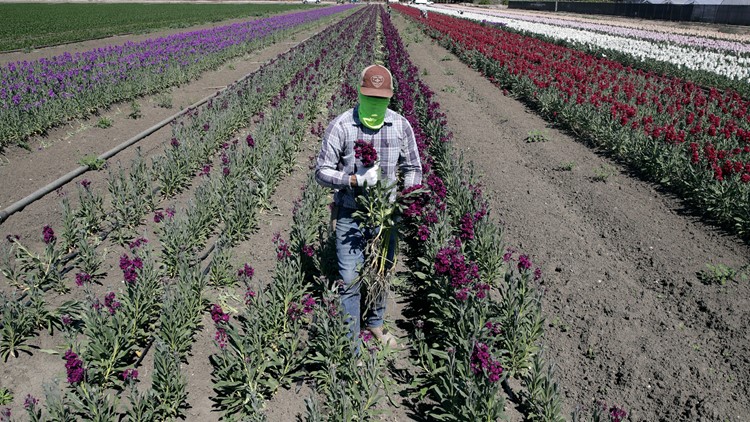SACRAMENTO, Calif — State Senator Anna Caballero (D-12) is calling on Gov. Gavin Newsom to help lay down a framework that'll ensure farmworkers get vaccinated.
It's a move that comes, in part, due to the impact COVID-19 has had on farmworkers, more than 90% of whom are Latino.
Latinos in California make up 39% of the population in California, but they account for 61% of coronavirus cases and 45% of the deaths.
“The numbers are tragic, and it makes me mad,” Caballero said.
Caballero, who originally comes from a small copper mining community in Arizona, said that she ultimately made the move to rural California so she could better help Latino farmworkers.
"Every time I see the numbers, I think about my family and I think about what it means for family members to lose somebody because there weren’t the resources to keep them safe," she said. "It’s personal for me, and it hurts.”
During the summer months, Stanislaus County saw a disproportionate impact on its Latino community. In December, Kamlesh Kaur, a county spokesperson for health services, told ABC10 that the surge in cases for Latinos was due to a lack of education and messaging for warehouses, food packaging, and agricultural sectors at the start of the pandemic.
Caballero said other factors like overcrowded homes, fear of government, and working conditions that made social distancing difficult also played a role in the disproportionate impact on Latinos.
Caballero and her fellow members of the legislature joined the call for a pilot project that would possibly launch efforts in Parlier, San Joaquin, Arvin, Los Banos, Soledad, Coachella, Brawley, Calexico, and El Centro.
Some goals would include establishing partnerships that would make use of pharmacies and mobile clinics to deliver vaccinations and using religious or community locations that give safe access to vaccine near a job site. Delivery systems for vaccines could be set up in each city for the pilot, and if it works, the model could scale for use in regions throughout the state.
She said vaccinations could potentially focus on bringing clinics to small rural communities that lack pharmacies and medical services. Vaccinations could also be brought to fields to vaccinate whole workgroups that tend to work together. It would help address issues like farmworker identification.
“It’s really true that they don’t have a badge, most of them, and proving that they’re working in fields or working in food production may be difficult to do unless the vaccine is given at the place of unemployment,” she said.
Part of Caballero's concerns stemmed from looking at the tiered system for vaccinations and not getting a clear response from counties as to how their farmworkers would be prioritized.
“I just want to make sure that we don’t forget that farmworkers need to be vaccinated, that every single county sets a priority for farmworkers to be vaccinated. And I thought the tiered system was so complicated that it was possible that different counties would treat farmworkers in different ways,” she said.
Despite the call for action to the governor, Caballero's focus is on the county level for now because the state has given counties a level of flexibility in how the vaccine is rolled out.
“I just want to make sure that we’re clear at the state level about what we’re telling the counties they can do because it’s been a little bit hard," Caballero said. "Every county feels like they’ve been told something a little bit different and so that’s what makes it difficult because there’s no consistency in terms of how things are being done.”





















